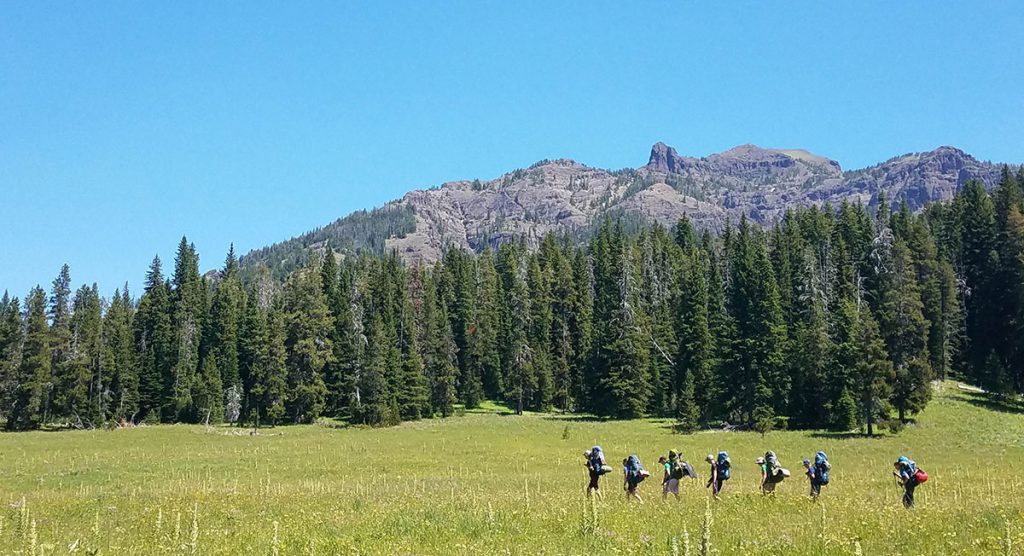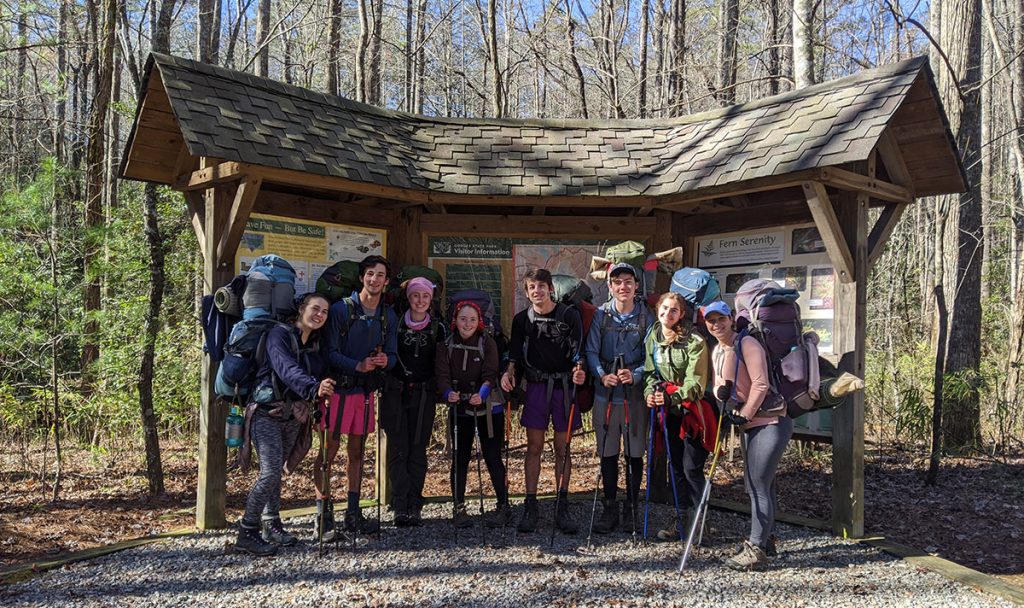A few weeks ago, we published a blog by current Adventure Treks parent and private college advisor Daniella Friedman with some helpful tips about the college application process.
In part two of this series, Daniella, who guides students through the college search and application process, talks about how students can write about their Adventure Treks trips in their college essays and how backpacking help prepare students to transition to college.
Read “Helpful Tips for the College Application Process – Part 1”

How do you suggest students write about their backpacking trip in their personal college essay?
Most college application platforms require students to write a personal essay. The personal essay is the student’s primary opportunity to distinguish themself from a heap of other applications with similar GPAs and test scores. Given that few colleges give interviews, the personal essay is the primary way for a college to get to know a student beyond academics. Therefore, a student’s personal essay should positively reflect upon their character, strengths, passions, and uniqueness. Their essay should also reflect that they are likable—the kind of person who would engage on campus, make a good roommate, and help build a strong community. Of course, given that admissions officers are reading hundreds of essays a day, it’s also critical that the student’s personal essay be memorable and well-written.
In the Common App, which is the most popular college application platform, the student submits a personal essay that is 650 words or less. Although there are several suggested prompts, students can choose to write about a topic of their choice. Therefore, an essay about an outdoor adventure experience like Adventure Treks is always fair game. Taking backpacking trips demonstrates to a college that a student is down-to-earth, adventurous, and willing to embrace challenge.
Yet, the student must be careful to avoid turning an essay about their backpacking trip into a cliché. How? They should not write about their entire AT trip or their challenge in hiking to the top of a mountain. Instead, the student should focus on a smaller slice of their AT experience that’s unique to them. And then they should explain how this AT experience changed them.
Some additional tips for writing a powerful personal college essay:
- Get started! The best time to write the essay is during the summer of your junior year.
- Brainstorm topics. Picking a great topic is the key to writing a strong essay.
- Outline the essay. This helps you to tell a story that has a beginning, middle and end.
- Write and rewrite and rewrite. Write a draft, leave it alone for a few days, and repeat!
- Tell a story that comes alive using specific details and vivid descriptions.
- Avoid passive voice, wordiness, and nominalizations because they make your essay boring.
- Be original and authentic! Don’t use cliches or fancy vocabulary that’s not you.
- Read your essay aloud. This will help you find mistakes and awkward phrases.
- Solicit feedback. Ask family, friends, teachers, or a college counselor for comments.
- Proofread. Make sure you don’t have grammar, punctuation, or spelling errors!
How can students write about their backpacking trip in their supplemental college essays?
Besides the personal college essay, many colleges require students to answer supplemental essay questions. The quintessential college supplemental essay prompt asks the student to describe why that specific school is a good fit for them. If a student is applying to a school with lots of outdoor extracurricular opportunities, such as Colorado College, the student can write about how their AT experiences fostered a love of the outdoors. Likewise, if the student wants to pursue a major at a college that’s somehow related to the environment, they can write about how their AT experiences fostered this interest. Students can be creative in making this connection, and they can also use their AT experiences as the basis for answering many other supplemental essays, such as:
- Describe an example of your leadership experience in which you have positively influenced others, helped resolve disputes, or contributed to group efforts over time.
- Describe the most significant challenge you have faced and the steps you have taken to overcome this challenge.
- Think about an academic subject that inspires you. Describe how you have furthered this interest inside or outside of the classroom.
The key is to answer the supplemental essay prompt using lots of specific details and vivid descriptions from the student’s AT experiences.

How will a student’s backpacking and outdoor adventure trips help them with the transition to college?
The transition to college is challenging, even for very bright and social kids. For many, this will be their first time living away from home, independently managing their time, organizing their belongings, cooking and cleaning for themselves, and taking care of their physical and mental health. Many students will need to adjust to a more competitive environment than they are accustomed to. And even the most social students may be challenged with finding their people or dealing with difficult roommates. Parents should talk to their children about the possibility that the transition to college may be difficult.
However, students who have taken backpacking trips with programs like Adventure Treks will likely have an easier time transitioning to college because they have already practiced many of these critical life skills. At AT, students gain experiences with living independently, managing their time and their belongings, and getting along with others for extended periods of time while living in a close community. They also have experience powering through challenging situations, relying on their peers for support, and admitting when they need help. This practiced independence and resilience will help them overcome challenges they will face during their freshman year of college.
For any additional help with the college search and admissions process, contact your partner in the college admissions process,
Daniella Friedman, J.D., college advisor
daniella@collegetogether.com
303-609-8636
collegetogether.com
